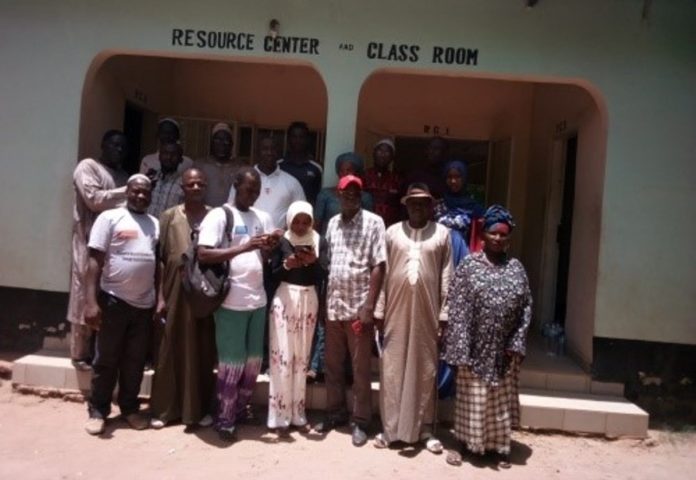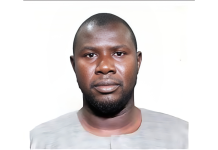By Awa B. Bah
As part of their oversight function to assess environmental and NGO activities and to make recommendations to Government, the National Assembly Select committee on the environment, Non-Governmental Organizations’ (NGO) Affairs and sustainable development, recently engaged the Wuli and Sandu Development Agency (WASDA), Tostan and CHIGAMBAS NGOs in Basse.
NA select committee Deputy Chairperson, Demba Soe,w said the committee is on a fact-finding mission to assess the level of progress and to note down challenges of NGOs in the country; that the committee is not a ‘witch hunt’ but a partner with all NGOs to ensure development and the sustainability of such partnerships; that the activities of NGOs complement Government’s efforts in all sectors of development in the country.
In welcoming the delegation, WASDA Director said their organization is a membership based NGO that works to alleviate the poor living condition of marginalized rural farmers in the Upper River Region; that their Smallholder Irrigation for Livelihood Enhancement – Business (SMILE B) and Upper River Region Livelihood Improvement (URRLIFE), is a project for Institutional Strengthening, Food Security and Environmental Management that has been in place in the Region for five years, with the help of major partners such as United Purpose (UP) and the European Union (EU).He said the project has a big impact on the empowerment of 35 women groups by securing a permanent source of income for them in the establishment of vegetable gardens, orchards, woodlots and a rice field for these groups in the region.
He said they have trained 60 youth, 60% of whom are females on improved agricultural and livestock management techniques, metalwork and fabrication; adding they have provided loans to farmers to help them establish their own enterprises through a revolving loan scheme managed by WASDA.
The WASDA Director said the NGO has implemented a rice irrigation project in Taibatu village under the Women’s Generating Income Project (WIGP), for the women of the village. The Director said the two-year project was funded by both the EU and VSO (Voluntary Services Oversees); adding they have successfully trained 175 women on adult literacy and 42 on tie and dye to improve their livelihoods.
According to the WASDA Director, the NGO’s strategic plan focuses on horticultural endeavors such as marketing and value addition; adding they have facilitated farmer to farmer networking to encourage more individual and communal efforts so that farmers can share their different farming techniques and practices.
He said the NGO faces challenges in the areas of water supply, donor funding, human resource, environmental problems as a result of human activities and mobility, and called on Government to put into consideration NGOs and their activities as they were here to complement their efforts. NGOs, he said, should be prioritized with subventions and their access to projects particularly Government related projects should be facilitated. He called on NAMs to strongly advise government on NGO projects and reduce the tax levied on them through the promotion of Government-NGO partnership.
The NA Committee made a similar visit to Tostan NGO and were received by staff members, headed by Edrisa Keita, the National Coordinator of the NGO in the Gambia. Keita commended the committee for the visit and said it was the first time that a committee from the country’s National Assembly visited and engaged them. Keita said Tostan came in to the Gambia in 2006 as an organized body that was going to respond effectively and efficiently to the needs of women and young people particularly the vulnerable. He said their areas of intervention include agriculture, civic education, human rights, health education, reproductive health and harmful traditional practices, peace and security; adding their spheres of operation was in two hundred and two cluster communities in the CRR and URR.
However, despite their achievement, Keita said Tostan faced challenges as an NGO. Keita lamented that taxation on gross and income tax remained a hindrance to their activities; that this affected their activities. He called on the authorities to reconsider it. Keita said Tostan as an NGO highly depended on donor funding which cannot effectively sustain their activities; that access to funding was difficult and requires time due to some unfavorable donor conditions. He said the visit by the NA Select Committee was timely.
Members of the NA Select Committee and subject matter specialist took turns to comment and raised issues on the update from WASDA and Tostan. They commended the two institutions’ leadership towards advancing the lives and welfare of women and young people and said the concerns they raise was going to be given the highest consideration from both Government and the private sector. They assured them the full engagement of members of the National Assembly and Government on the progress and process of NGOs in the country.
The committee also paid a brief visit to CHIGAMBAS multipurpose skill training center where young people were freely engaged in skills training in agriculture, carpentry, woodwork, engineering and tailoring.





















